“It is only when we see God’s word ‘come alive’ in us that we will become disciples”
Laura Sanlon, director of Spain’s congress ‘Misión Posible’, shares her vision of God’s mission. More than 600 young Christians and leaders came together in Easter.
BARCELONA · 17 APRIL 2015 · 10:09 CET
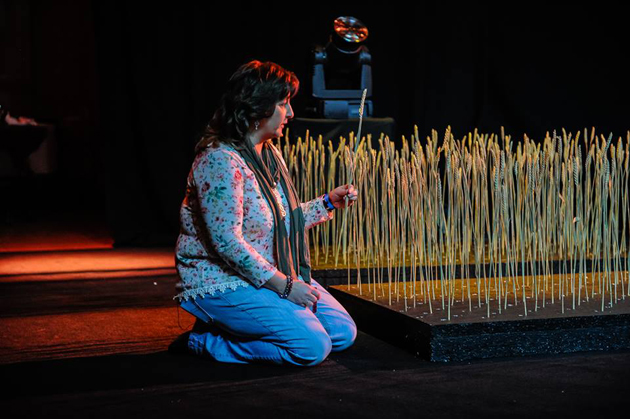
Misión Posible is Spain’s big conference for those who think that “mission is possible in Spain.” About 600 Christians of all ages -including young leaders and pastors- came together in Madrid two weeks ago with a desire to be part of God’s mission in their area of influence: schools, workplace, cities…
Through Inductive Bible studies, preaching, interviews, the event focused on “Jesus, the I am.”
The conference offered special training for pastors and youth leaders; teenagers, children and even babys had their own programme, too.
From beginning to end, the focus was to challenge everyone to understand more of God’s mission for the church “in Spain and beyond.”
Music and drama served to this end, and different ministries shared their action in the country. Prayer had also its central space, with a special final night in which everyone had the opportunity to write down their commitments.
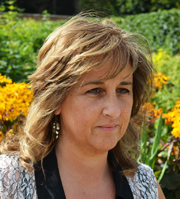
Evangelical Focus interviewed her about her view of youth, mission and the gospel in Spain.
Question. Tell us some things you would highlight from this latest 2015 Misión Posible conference.
Answer. There is one thing I would highlight from Misión Posible and it is the way God moved and worked and touched lives. The way He did it has been so varied and related to each person, their situation and their circumstances. There have been conversions of young people accepting Jesus for the first time in their lives, there have been moments of reconciliation during the prayer night, their have been recommitments to become disciples who make disciples, there have been commitments to pray for towns in Spain that no have evangelical church, there have been commitments to consider planting new churches in Spain…
All of this is what we as a team worked and prayed for during the past 2 years: that we could create a space and place where God could work and touch lives - and He did. We are so thankful to all who prayed for Misión Posible around the world! God has answered prayer and we know all of His work will have an impact on Spain and beyond in the future.
Q. “The mission is possible in Spain”. Why this motto? Have Spanish Christians traditionally thought mission is not possible here?
A. Misión Posible was born as an event with this as its motto because we saw the need to make this known to the young people - that God’s Mission is possible and that they can play their part where they are. It actually helps to keep the purpose of MP before the team for every Conference and all the preparations and the clear idea to change the mind set and challenge the young people to get involved in God’s Mission.
You could say that yes there has been a mindset in Spain in the past years that has made people believe it is hard in Spain, that people are not interested in the Gospel, that people won’t accept Christ. In a sense this has been true. Spain is hard place spiritually and it has been difficult to see growth but we need to believe in God and the power of the Gospel message and believe that there are people ‘out there’ who need Jesus in their lives. The church has generally become ‘comfortable’ and I believe in many cases serves those ‘in the church’ rather than mobilise the church to serve those ‘out side the church’ and encourage Christians to live out their lives as disciples who make disciples.
We want to help change that vision and remind people of God’s love for the lost and the passion that Jesus had for those who didn’t know him and the great commission he gave us to go and make disciples. (Matthew 28:18-20)
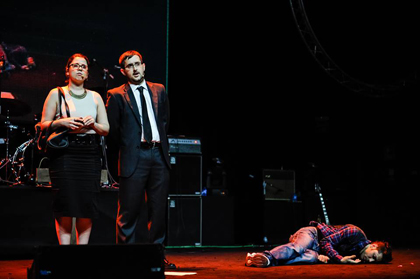
Q. You are from Ireland, but you have been working in Spain as a missionary for many years. What has changed in the way new generations of evangelicals see their faith in God?
A. Yes, I am from Northern Ireland and I have served in Spain for over 25 years. Last year as I celebrated 25 years of service it was interesting as it gave me the opportunity to ‘reflect and review’ the past 25 years. It is when you look back you can fully appreciate all the changes you have witnessed during those years and in all aspects of life: society, technology, religion but also church life and the lives of Christians.
I think there are two sides to this as first of all there are the generations the church has lost as they filtered out of church and church life over the past years probably observing that faith was not very ‘alive’ in Christians. Then there are those who have grown up in the church but desire to live out their faith in a real and dynamic way realising there is more to ‘faith’ than just ‘attending church’. These generations want to see God move and work in and through them and to see an impact on their country and where they live and work. They will not be satisfied with an ‘inherited religion’ from their parents or grandparents but seek to know that God is real and want to see Him impact their lives and through them impact others lives.
I can sense an ‘awakening’ I haven’t experienced in earlier years. There is interest in planting new churches and consideration of new expressions of church and all because of a desire to see God work. Many young people feel called to serve or get training… there is something stirring and I believe God is doing something new and fresh in the present generation. During this past Misión Posible we have been emphasising the fact that Jesus was and is and always will be the Son of God and that fact, if we believe it, will help us testify to Jesus in a society that doesn’t believe in Him or that we was ‘ Son of God’.
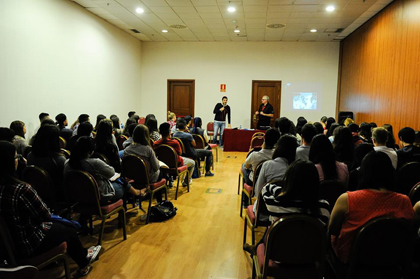
Q. You have put a lot of emphasis on the personal and group study of the Bible as the only way to be empowered for mission. Why is there a need to understand this?
A. I have discovered over the years that youth leaders, young people (and probably many people in the churches) do not read their Bibles regularly! How can people know God if they don’t read His word or spend time with Him or allow Him to apply it to their lives?
For me this is the key to transformation in people’s lives and then through them ‘their world’ and then in the rest of the world. Many people depend on getting ‘feed’ at church and haven’t learnt how ‘to feed themselves’. There needs to see a radical change in how we look at discipleship and what it means to be a ‘disciple’. It is only when we see God’s word ‘come alive’ as it speaks into our lives and we are transformed by it that we will become disciples who then make disciples… as Jesus commissioned us to be.
Through the introduction of Inductive Bible Studies at Misión Posible we have given all the participants a tool that will help with this change of how they interact and engage with God’s word. We even teach the children how to study the Bible this way.
The Misión Possible programme is always based on a Bible book or passage and everything is developed from that Biblical focus. This enables the message to go forward in power as it is reemphasised in different ways (inductive Bible study, drama, videos, art, music, testimonies) as well as being preached.
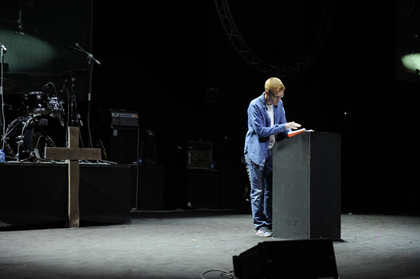
Q. It seems like there are now young adults in Spain aged between 20 and 35 who have good training (university, theology, other…); and have a vision of mission on their work place, in their cities… How will they influence for good in their local churches?
A. I think some young adults have the vision of mission in their work place but not all. I believe there is still work to be done to transmit this vision that wherever people study or work is their place of mission.
I think the churches still need to have this vision and I’m not convinced it is in many churches. I hope and trust those who have the vision will transmit it in their churches and influence others with that vision and therefore generate more people creating an impact in their place of work.
At the end of Misión Posible we challenge people to talk a stalk of wheat as a symbol of their commitment to the participate in the harvest Jesus calls us to and one guy told me he took his into work where it is now visible and serves as a reminder of his call to mission there amongst his colleagues.

Q. Finally, how do you dream that the Misión Posible movement can serve the local churches in Spain?
A. I dream and pray that those who attend Misión Posible will go back to their churches and share what they have learnt and what God has said to them. We encourage the church leadership to follow up those who attend Misión Posible and we ask them to give them an opportunity to share with the church. But I dream of how MP could become a movement and not just a Congress every two years. This year for the first time we are moving in that direction. We would love to see those who are called to serve supported financially by the Spanish churches, we would love to help see new initiatives and churches planted in this country, we would love to be a connecting point for missions, churches, people, and organisations to promote God’s mission and help each other. We would love to serve as a platform helping to make mission resources available, and of course the dream would be to see all of this converge into a movement that impacts Spain for God’s glory.
It’s a big dream! But we have a Big God who has stretched us in faith and trust in Him and He has let us taste and see a little of what He can do … So in God we trust!
Seeing the big team of volunteers in MP have their faith and trust in God increased during the process of preparing Misión Posible, excites me to see that multiplied in the lives of many others as they also trust God to do greater things in their lives and through them, in Spain and beyond.
Published in: Evangelical Focus - europe - “It is only when we see God’s word ‘come alive’ in us that we will become disciples”
